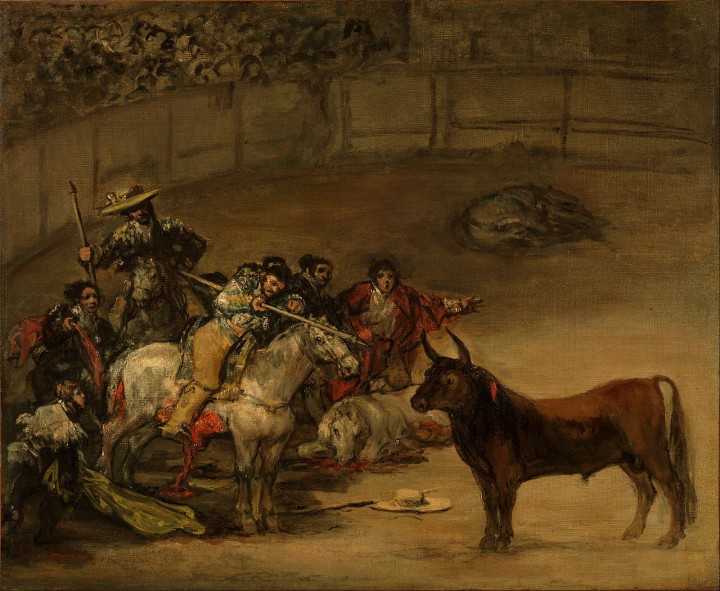 Goya produced many images of bullfights. He painted this canvas in 1824 when he was 78 years old when he was living in France. It is an oil on Canvas, 49,80 x 70,80 cm. The bull is ready for charge against the Picador. In background there is dead horse riminding us that at the time horses faced the bull without protective shells.
Goya produced many images of bullfights. He painted this canvas in 1824 when he was 78 years old when he was living in France. It is an oil on Canvas, 49,80 x 70,80 cm. The bull is ready for charge against the Picador. In background there is dead horse riminding us that at the time horses faced the bull without protective shells.
In 1816 Francisco de Goya published Tauromaquia, 33 engravings about bullfighting. They represents teh evolution of bullfighting from its origin to the begining of the XIX century and ilustrates huge achievements of famous bullfighters as Pedro Romero, Ceballos and Pepe Illo.
Francisco de Goya y Lucientes was born in Fuentetodos, a town in the province of Zaragoza on March 30th 1746. Between 1767 and 1771 travelled to France and Italy and afterwads started to make the first engravings inspirede by some paintings by Velazquez.
In 1785 Goya became director of the de Department of painting at the San Fernando’s Academy and in 1786 official spanish king’s painter.
In 1792 he became deaf and started to have hallucinations and extrange visions. Nonetheless he painted the dome of the real Chapel of San Antonio De La Florida in Madrid and a year after he made de egranving’s collection “Los Caprichos”.
Goya was shocked by the terrible Napoleonic invasion in 1808 by which he was inspired to paint “ Los fusilamientos del 3 de Mayo” and La Carga de los Mamelucos” and to print “Los Desastres De La Guerra”. In 1824 he went to Burdeos and printed the series of 4 lithographies “ Los Toros de Burdeos”. On April 16th 1826 he died in Burdeos at the age of 82
Goya And The Stage of Varas
Responder
